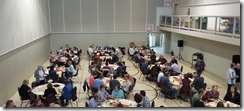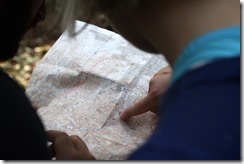“Anyone who listens to my teaching and follows it is wise, like a person who builds a house on solid rock.” Matthew 7:24 (NLT)
 Just how do we listen to Jesus’ teachings and embrace them in our life?
Just how do we listen to Jesus’ teachings and embrace them in our life?
It was a Saturday night and I was sitting on our back steps and reflecting on life. I started to think about the sermon I would preach the next day. I was talking about the need to learn the ways of Jesus and embrace him in the everyday moments. I wondered to myself, just how do I learn the ways of Jesus.
Here are six things I wrote down in my journal of ways I go about learning the ways of Jesus and embracing in him my life.
These are in no order.
Six ways to listen and follow Jesus’ teaching
a. Time for self reflection
Life goes so fast we fail to slow down long enough to actually reflect upon our experiences and their impact in our life. It is during these moments that I am looking at my life in light of who Jesus is. I am not sure if I do this well yet, but am learning as I walk this journey.
b. Regular reading of and meditating on God’s word
It is no secret that one of the biggest catalysts we can have in growing our faith is a regular reading and meditating on God’s word. I have learned to not get so hung up on completing a certain amount of text, but picking up where I left off. For example I do use some version of a bible reading plan. However, if I miss a time, I just pick up either where I should be in the plan or where I left off. I am not concerned about completing it, as I am about spending time in God’s word.
c. Investing in others (serving)
There is no better way to learn the ways of Jesus than to help others learn the ways of Jesus.
d. Regular gathering with God’s people for teaching, worship, prayer and fun.
Community is a big part of our faith journey. Many struggle with it for many different reasons. However if I am honest, it is part of how I listen to Jesus and follow him.
e. Learning from Saints now and before.
This one is connected to the community one above. The example as well comes out of Hebrews 11 and I have found it useful. You can do this through reading the stories of those who have gone before and those who are now. You can do this meeting with other followers of Jesus and being intentional with your questions and learn from them.
f. Walk the path
This is literally about putting his words into practice. It is that easy and that hard. It is about how I use my time, what I read, how I react and in what I trust. It is not easy.
What about you? How do you go about learning the ways of Jesus and putting them into practice?





